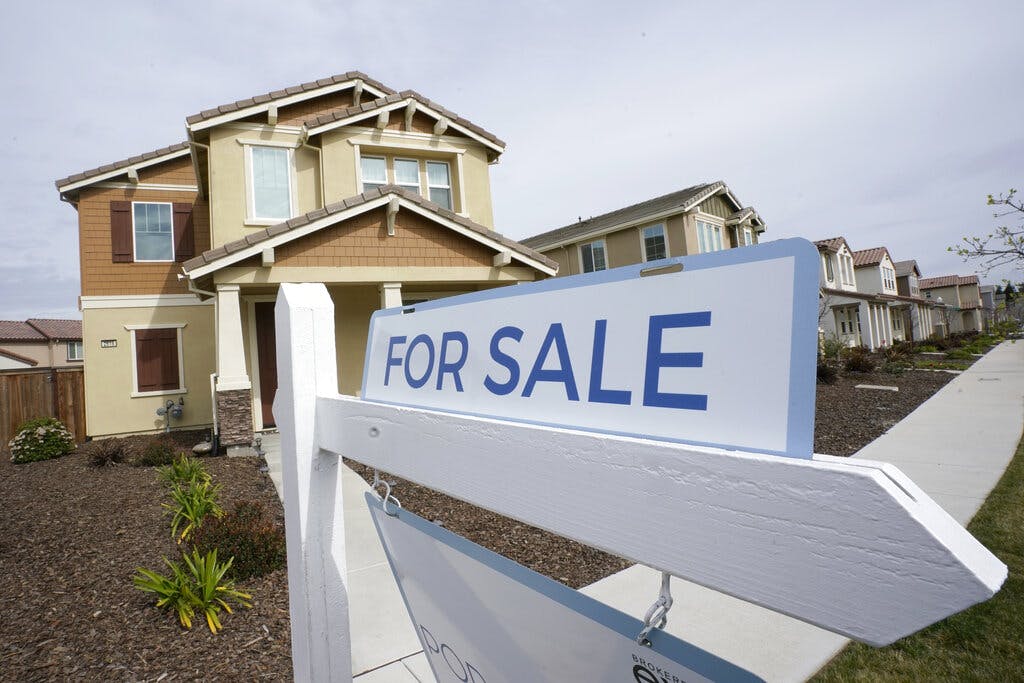Progressives Push for National Rent Control After Spike in Housing Prices
With 40 percent of rental households spending more than 30 percent of their income on rent, Democrats call for federal agencies to protect renters from the housing market.

Progressives in Congress say a new “Renters Bill of Rights” teed up by the Biden administration doesn’t go far enough to protect the nation’s 44 million rental households and are calling for federal action that borders on national rent control, a prospect that has alarmed landlords and other housing industry executives.
“There is a tremendous power imbalance in our housing system that tilts heavily in favor of landlords at the expense of low-income and other marginalized renters,” the president and CEO of the National Low Income Housing Coalition, Diane Yentel, said. The administration’s Renters Bill of Rights is “an important step,” she said, “but there is much more work still to be done.”
The 19-page bill of rights blueprint lists five principles for supporting renters. They include easing rental application and documentation requirements, developing clearer lease language, educating renters on Fair Housing compliance violations, encouraging tenant association formation, and creating stronger barriers to eviction. The document, written by the National Economic Council and Domestic Policy Council, is the result of a six-month series of meetings with housing providers, legal associations, and renter advocates.
In a letter to President Biden signed by 50 Democrats, lawmakers from both chambers urged the administration to take additional actions to enforce the non-binding statement of principles. They suggested directing federal agencies to adopt stronger renter protections for individuals renting homes financed with government-backed mortgage properties, enforcement action against “unfair rent gouging practices,” investigation of illegal discrimination practices by corporate landlords, protections against rent inflation, and larger emergency rental assistance programs for the states.
“My community is being crushed by the burden of high prices and wages that can’t keep pace. Meanwhile, corporate landlords and other profit-driven companies are bringing in record profits,” Representative Jamaal Bowman, who co-wrote the letter with Senator Warren, said.
The Renters Bill of Rights comes more than a year after 2021’s spike in rents during the Covid-19 pandemic and the subsequent supply-chain failures. During the year, rental prices rose 17.6 percent over the previous year.
The spike in prices followed authorization by Congress in December 2020 and March 2021 of two Emergency Rental Assistance packages, totaling $46.55 billion. The packages aimed to help at-risk renters pay their housing-related costs, including rent.
The funds were disbursed to more than 700 government grantees and assisted just less than 500,000 households a month during its peak, according to the Government Accountability Office. The accountability office said that the program was plagued by weaknesses in oversight, incomplete or uncollected data, and evidence of overpayments and payment errors.
Since then, many of the states’ assistance programs have ended, the housing market has flattened due to interest rate increases, and rental housing prices have receded. Realtor.com reported that prices for rentals were cheaper in December than the costs of buying a starter home. The December rates represented the fourth monthly fall in rental prices.
The 2023 National Rent Report issued by Apartment List reported that the national median rent increased by 3.8 percent over the course of 2022. During the same time, overall inflation in America rose 6.5 percent. Data analytics firm Core Logic also reported lower year-over-year price increases in November for all four price tiers for single-family rentals.
Yet with 34.2 percent of Americans living in rental properties, and 40 percent of rental households spending more than 30 percent of their income on rent, Ms. Yentel’s group says 7 million affordable homes will need to be built by 2035 to keep up with demand.
Developers and investors welcome additional construction, but say strict rules imposed at the local, state, and federal levels are barriers to building new housing.
“Housing supply is the only way to lower the cost of housing,” the National Multifamily Housing Council vice president of public affairs and communications, Colin Dunn, told the Sun. “And for that we need to make it easier to develop more housing of all types.”
“We’ve got under-build. We’ve got millennial demand. We’ve got post-Covid psyche impact where people want more space. And working from home. Those all coming together are not solved by slapping rent control on things,” the National Real Estate Investors Association chief operating officer, Charles Tassell, said.
“There are other pieces that all have to be brought together, and that’s part of what’s not being done,” Mr. Tassell told the Sun.
Alongside the blueprint, the White House has also launched a challenge for housing providers to work on their own initiatives to improve transparency and fairness in the rental market. Mr. Dunn’s organization, which represents 2,000 owners, developers, and managers, as well as its partners, agreed to help prospective residents build credit, provide resource information to residents in financial distress, and communicate practices through a new online resource hub.
Yet with concerns about a new regulatory push, Mr. Dunn suggested the administration turn its attention to the Housing Supply Action Plan it introduced last May. That plan extends low-income housing credits to ensure the building of affordable housing projects and focuses on developing and preserving housing for low- and moderate-income families.
“They had a lot of good ideas in that plan and we encourage them to focus more on that than what was released this past week,” he said.

